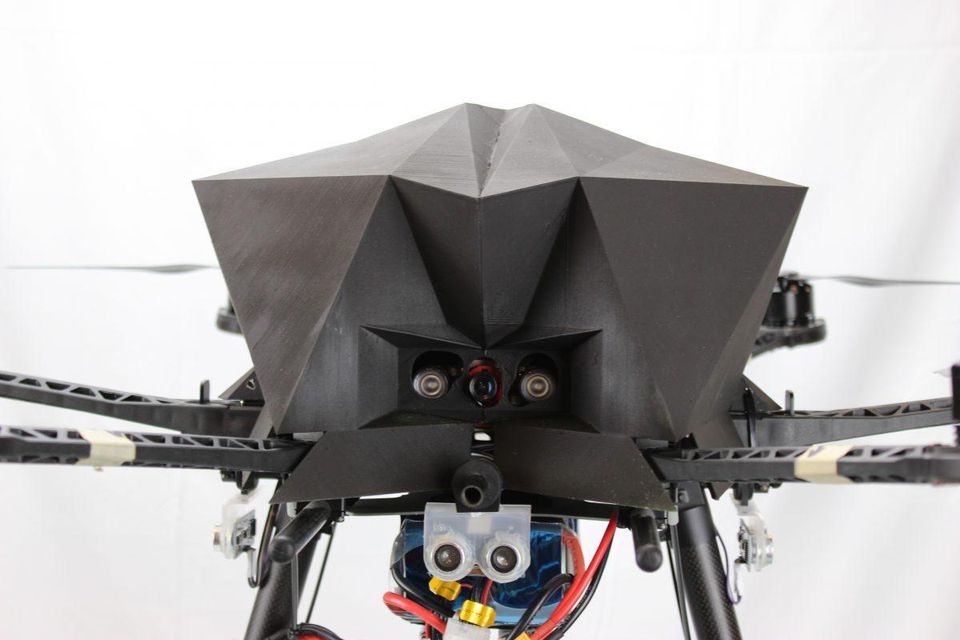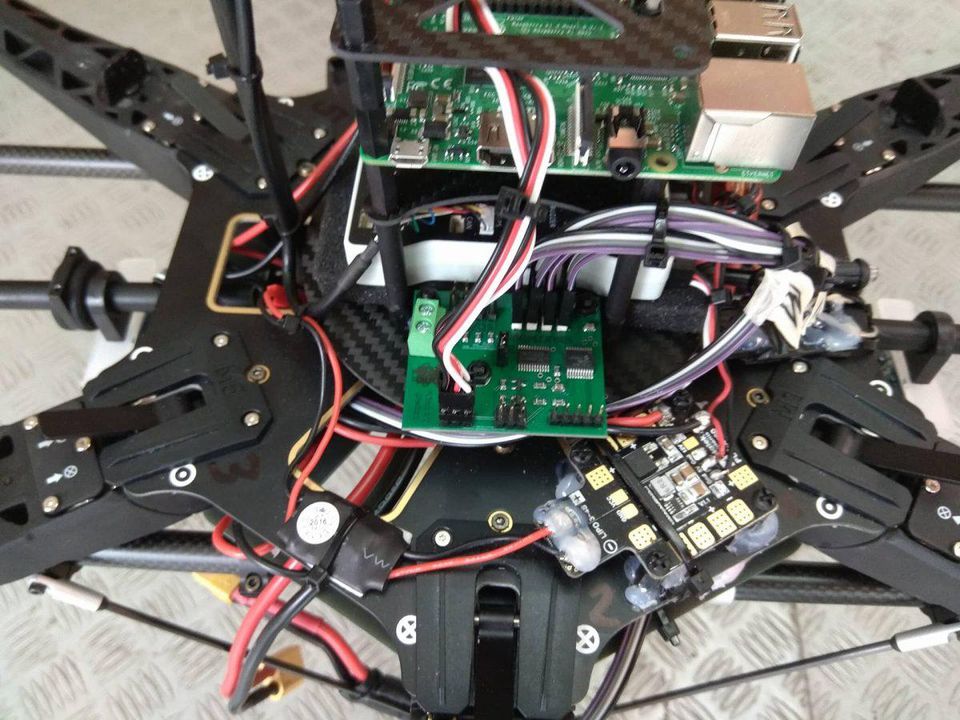Flying drones are mostly known as an amateur or professional devices for gaming, videography, racing and military missions count some of their applications. But what if one drone could do all the above? This drone as a platform idea was the starting point for the foundation team of AiRFLOW. The drone they designed is a common base for commercial, military and tailor-made solutions. This comes from a combination of software implies artificial intelligence technologies and a state of the art hardware that provides the necessary power for fail-safe operation and all the sensors required to complete its mission.
Even if the flying mechanism is common, almost everything else is changeable. Cameras with night vision, smoke monitoring, or even face recognition, weather and chemical compound sensors are easily adapted in the flying mechanism with some ‘clicks’ in the programming application. ALiSA is the Lightweight Integrated Services Assistant that AiRFLOW has designed and manufactured, giving the drone AI capability. The drone is fully autonomous to complete any mission, even if its owner is in another continent. A transporter can move the drone everywhere in the world, put it out of its box, press the ‘start’ button and wait until ends its mission and come back. During the flight, there is the option of remote control and flight monitoring. In case the mission needs more than one flights, the drone can return in its base, recharge and take off again. In the case of fleet missions, AiRFLOW offers the PERCEPTRON device that connects any drone with the AiRFLOW platform and enables full fleet management and features of the core drones. The full digital and encrypted control, plus the data transmission encryption make the drone compatible with military missions where security is an issue of high priority.
According to analysts’ estimations, such as PWC, commercial use has a lot of potentials. In several business activities, drones can substitute traditional methods of operation. The decision of Federal Aviation Administration to expand permissions for commercial use of drones offers new opportunities and the market size is expected to surpass $100 billion globally by 2020, which according to Gartner, reached $2.8 billion in 2016.
Two companies are the most known competitors of AiRFLOW, which operates in Greece. Airobotics and Aptonomy operate in the U.S. and Israel respectively. All three companies are in the embryonic stage of development. AiRFLOW has a promising business plan, that includes leasing drones, selling over the drone solutions to end customers, providing solutions that are being sold for resellers or integrators, utilizing third party drone hardware and extending its capacity of operations worldwide. To make the dream reality the company seeks out a seed capital of at least €2 million. According to George Delaportas, Co-founder & CEO of AiRFLOW, ‘With the seed capital, the company will stay alive for 2 to 4 years, expand its activities worldwide and improve the platform technologies. Already there are some contacts with VCs in Europe, the U.S. and Asia.’

